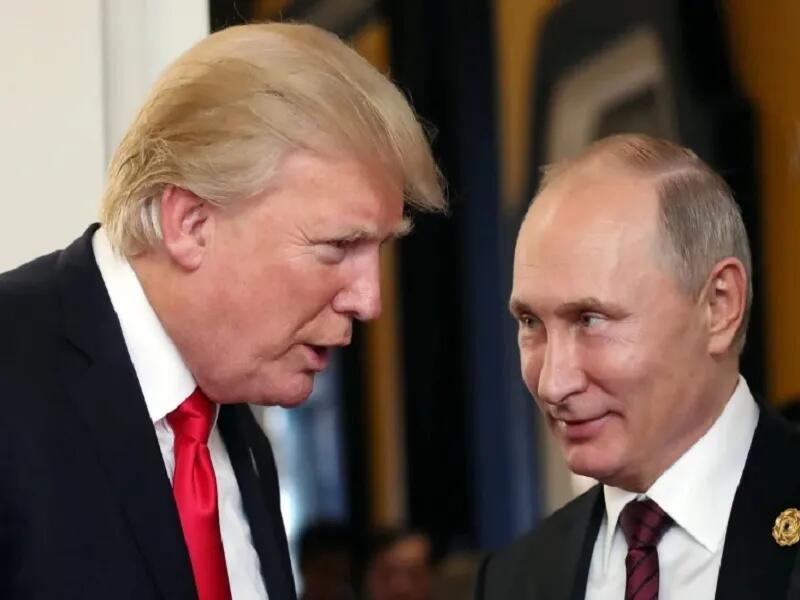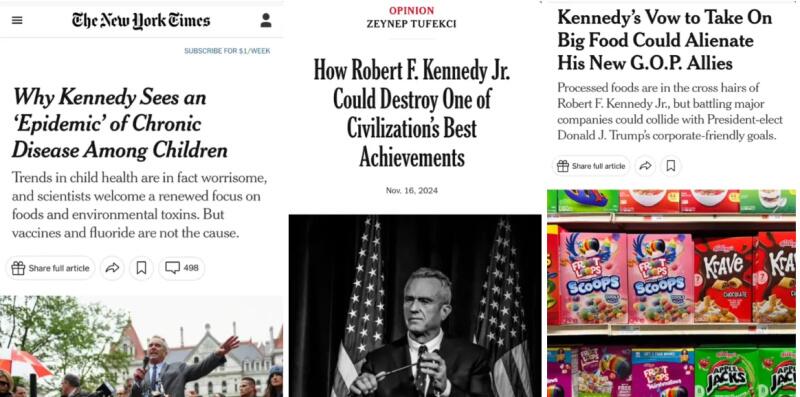by Andrew Korybko via Substack,
Russian Energy Minister Alexander Novak shared an update on the proposed Russian gas pipeline to China through Kazakhstan, which was analyzed here in November, shortly before the start of the year. He confirmed that “This process, so to speak, is underway. Estimates, the feasibility study and negotiations are now underway.”
This statement shouldn’t be misinterpreted as assuming that the project is a done deal like RT implied in its report, however, since it’s more of a message to the US at this point.
The previously mentioned analysis cited last summer’s about the continued Sino-Russo pricing dispute over the Power of Siberia II (POS2) pipeline, which boils down to China demanding bargain-basement prices (reportedly equivalent to Russia’s domestic ones) while Russia obviously wants something better. This impasse hasn’t yet been resolved, and while some like Asia Times’ Yong Jian consider the trans-Kazakh proposal to be an agreed-upon rerouting of POS2, that’s arguably a premature conclusion.
Pricing disputes still exist and the “process” that Novak described has only begun. It’s far from finalized and might still take a while to be completed, if ever, as suggested by the POS2 and Pakistan Stream Gas Pipeline precedents. The first, which was earlier known as the “Altai Pipeline” before the decision to reroute it via Mongolia, has been discussed for a full decade already with no deal in sight. The same goes for the second, which was first agreed upon in 2015, but no progress has been made since then either.
Amidst the latest talk of the Russia-Kazakhstan-China (“RuKazChi”) gas pipeline, Russia’s last direct gas pipeline to Europe was just shut down after Ukraine’s decision to let their five-year transit agreement lapse. Russia can still indirectly export gas to Europe via TurkStream, and Europe can always compensate for this long-foreseen loss of 5% of its gas import total via more Russian LNG, but the writing is on the wall that the EU will continue diversifying from Russia under American pressure.
In that event, Russia’s lost budgetary revenue from energy exports to Europe can only realistically be replaced by China, but Russia is still reluctant to agree to the bargain-basement prices that China is reportedly demanding. Its decisionmakers’ thought processes can only be speculated upon given the opacity and sensitivity of these talks, but this might reasonably be due to the expectation that the US’ more muscular containment of China could coerce Beijing into agreeing to better prices with time.
Another possibility, which isn’t mutually exclusive at this point at least, is that they might also be holding out hope that some of their European exports could one day be resumed seeing as how the infrastructure still exists but their partners made a US-pressured political decision to cut off imports. The best-case scenario from their perspective would therefore be that China agrees to prices closer to the market rate while the EU resumes some of their Russian gas imports after the special operation ends.
The reality though is that Russia is unlikely to have its cake and eat it too, and there’s no guarantee that either of its two main gas partners – the EU and China – will behave as expected even at a later date. The EU won’t resume any pipeline imports unless it receives approval from the US while China is known to operate on a much longer timeframe than most so it might hold off on clinching a deal indefinitely until Russia finally accepts its bargain-basement price demands. This places Russia in a very bad position.
Unless something changes, Russia might very well be coerced by the unfortunate circumstances in which it finds itself into agreeing to China’s reported proposal to sell it gas at domestic prices, which could turbocharge China’s superpower rise while placing Russia in a greater position of dependence.
That might be preferred by Russian decisionmakers over sitting on these reserves indefinitely without receiving any financial benefit from them as sanctions start to create fiscal and monetary challenges.
From the US’ perspective, it’s worse for Russia to turbocharge China’s superpower rise and enter into a relationship of greater dependence with it that could be exploited by China to procure other resources at equally cheap rates than to allow the partial resumption of Russian exports to Europe. At the same time, such resumptions couldn’t be approved until after the Ukrainian Conflict ends, and this would be politically impossible in any case unless the US could spin the outcome as a victory of sorts over Russia.
Likewise, Russia couldn’t agree to this arrangement unless it too was able to spin the outcome as a victory, especially if the informal terms include a commitment not to build any new pipelines to China in exchange for the abovementioned proposed resumption overcompensating for that lost revenue. Therein lies the need for creative diplomacy of the kind suggested here last month and here the other day, the insight of which will now be blended, summarized, and built upon for the reader’s convenience.
The gist is that the US and Russia could agree to a series of mutual compromises culminating in the partial restoration of an energy bridge between Russia and the West for the purpose of depriving China of its envisaged decades-long access to ultra-cheap Russian resources for fueling its superpower rise. No one should assume that everything proposed below will enter into force, but these suggestions could help move their talks along.
From the US’ side, its possible compromises could take the form of:
* Ukraine finally holding elections as part of a US-backed “phased leadership transition” against Zelensky, who’s the top obstacle to a lasting peace, and then legitimizing the following two agreements;
* Ukraine restoring its constitutional neutrality in order to exclude itself from ever joining NATO and thus resolving the core security concern that provoked Russia’s special operation;
* Ukraine demilitarizing and denazifying everything east of the Dnieper in what had for centuries been Russia’s traditional “sphere of influence” (everything west had traditionally been under Polish influence);
* The US terminating its bilateral security agreement with Ukraine in order to assure Russia that any cessation of hostilities wouldn’t be a ruse for rearming Ukraine and reigniting the conflict at a later date;
* The US agreeing that no Western peacekeepers will deploy along the DMZ between Russia and Ukraine east of the Dnieper (all parties might agree to an entirely non-Western peacekeeping mission though);
* The US also agreeing that Article 5 won’t apply to any Western country whose uniformed troops in Ukraine, which would be unilaterally deployed there in this scenario, come under attack by Russia;
* The US approving the EU’s partial resumption of Russian gas pipeline imports in order to buoy the bloc’s struggling economy via an influx of low-cost fuel (but higher-priced than what China demands);
* The US and EU returning some of Russia’s seized assets as “compensation” for the West retaining control over the European portion of its pipelines;
* The US lifting its sanctions on the Russian-EU energy trade, including Russia’s use of SWIFT, and expanding this to include more countries and spheres as a reward for keeping the peace with Ukraine;
* The US waiving sanctions on Russia’s Arctic LNG 2 project for itself, the EU, India, and Japan so that they can replace lost Chinese investment and ensure that they receive this gas instead of China;
* The US replicating the preceding policy on a case-by-case basis to squeeze out and ultimately replace all Chinese investment in Russian energy projects to preclude the possibility of more future exports to it;
* and the US building upon the trust that it hopes to regain with Russia through these compromises to resume frozen strategic arms control talks on a priority basis before the expiry of the New START in 2026.
From Russia’s side, its own compromises could take the form of:
* Agreeing to only the partial demilitarization and denazification of Ukraine west of the Dnieper (ideally with the first influenced by the Istanbul Agreement while the second might remain superficial);
* Limiting its control of Ukrainian-claimed lands to only Crimea and those four regions that voted to join Russia in September 2022’s referenda;
* Tacitly accepting that it won’t be able to assert control over the parts of Kherson and Zaporozhye Regions west of the Dnieper but nevertheless continuing to officially maintain such claims;
* Agreeing to limited military restrictions on its side of the DMZ as a trust-building measure for furthering the rest of the complicated negotiation process and then complying with these terms;
* Informally agreeing to prioritize the development of its Arctic and Pacific fleets over its Baltic and Black Sea ones in a tacit cession of influence to NATO that soberly reflects the current military realities;
* Formally acknowledging the loss of control over the EU and Ukrainian portions of its pipeline infrastructure (ideally in exchange for “compensation”, including the return of some of its seized assets);
* Tacitly accepting that the rest of its seized assets are lost, but possibly agreeing that they can be invested in rebuilding Ukraine and/or Syria or donated to the UN, perhaps to fund a new African project;
* Informally agreeing not to build new pipelines to China or expand energy exports to it so long as sanctions-waived energy investments from and exports to others overcompensate for that lost revenue;
* Unofficially preferring sanctions-waived investment from others (America, Europe, India, Japan, South Korea) in its resource-rich Arctic and Far East regions as opposed to that from China;
* Doing the same with regard to preferring tech imports from them (and Taiwan too, which was Russia’s main source of high-precision machine tools a year ago);
* Tacitly accepting that these sanctions waivers can be rescinded in an instant if Russia reneges on the Ukrainian or Chinese terms of this proposed grand deal;
* and negotiating with the US in good faith on strategic arms control, which could ultimately include restoring limits on intermediate-range missiles in Europe that lead to warehousing the mighty Oreshniks.
For as politically difficult as these compromises might be for each side, the US could spin them as having stopped Russia from controlling all of Ukraine and thus preventing it from planting its boots on the Polish border, while Russia could spin them as having stopped Ukraine from joining NATO and thus preventing that bloc from planting their boots on its exposed western border. Moreover, Russia would relieve pressure upon it in Europe, while the US Navy would control the bulk of China’s energy imports.
The key to this is the US offering Russia a decent deal in Ukraine with lucrative sanctions-waived energy and tech opportunities that would incentivize Russia into informally agreeing to deprive China of decades-long access to ultra-cheap resources for fueling its superpower rise at the US’ expense. This grand deal is Trump’s to lose, and the world will know that he fumbled it if Russia makes progress on new pipelines to China, which could accompany or be followed by him “escalating to de-escalate”.




